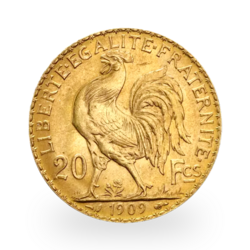I mean, what if the debt wasn't serious? What if the explosion of its amount all over the world since the coronavirus crisis had no harmful consequences? What if we could even get rid of some of it without incurring any damage? This is the little tune we hear from those who want more and more public spending, who believe that only public spending can get us out of the rut, that we have to keep printing money. The Keynesians are fighting back.
A first argument is that public debts will never be repaid anyway, because they are in fact "rolled over": as soon as one bond matures, it is repaid by another issued at the same time. The debt is constantly being projected into the future and, as Keynes said - "in the long run we will all be dead" - so why bother.
The other argument is that a part of it, the part held by central banks, could be painlessly removed. Indeed, in the context of their asset purchase programs (QE), central banks hold government debt, so why not simply erase it? Just as it is impossible to cancel the public debt held by economic agents without putting them in serious difficulty (individuals through life insurance, insurers, banks), and expose themselves to retaliatory measures from foreign countries holding them, so removing a debt from a central bank's balance sheet would be a simple accounting operation without direct consequences. For example, the Banque de France holds 20% of government debt and then, with the stroke of a pen, this amount disappears, as if by magic.
I mean, there would still be a consequence: the central bank would record a massive loss as a result of this hole in its balance sheet, which would require a recapitalization by its sole shareholder... which is none other than the government. A clean deal after all. But the Keynesians do not stop at this detail ("let's pretend", "the central bank bails itself out with its money printing press"), and let's admit that it works.
One thing to remember is that when a creditor and a debtor agree to write off a debt, the creditor incurs a loss and the amount of money in the economy remains constant. But in the case of the central bank and its government, the central bank has created money to acquire Treasury bills, and if the debt is cancelled, the money created on that occasion is not cancelled, but continues to circulate. The money supply is therefore increasing at an accelerated rate and this will one day result in a very specific tax: inflation. This is the penalty.
"But there's no more inflation today, stop scaring us!" the Keynesians reply. On consumer goods, certainly, thanks to international competition (but questioned everywhere with the will to relocate...). However, price increases have been present for a long time on real estate, and it seriously affects the purchasing power of households. It comes on energy, particularly in Europe, following the enormous costs of the "energy transition". Maybe soon on food with the health standards.
But above all, this excess of money creation, this money created without any real counterpart, will be translated into inflation in one way or another; it is illusory to escape from it, as history shows, as well as recent times (Yugoslavia, Zimbabwe, Venezuela). The central banks seem to be preparing for this, one of the members of the Board of Governors of the Federal Reserve recently declared that he wanted to abandon the strict objective of 2% inflation per year (Reuters). 2% annual inflation is not, however, the "price stability" that central banks boast about. This figure already means a doubling of prices in 35 years (less than the length of a career), but this constraint is still too strong for them...
Moreover, inflation depends not only on the amount of excess money, but also on the speed at which it circulates. It has been falling steadily for years and has compensated for this increase in stock, but for how much longer? The speed at which money circulates depends essentially on psychological factors, which are difficult to formalize. At the slightest mistrust of money or the banking system, it explodes, and so do prices. Keynesians play with fire, and unfortunately they have the ear of the people in power. Basically, how can we believe that manipulating money can promote growth? Only work, innovation and trade can create wealth, and money must be stable and independent of political power. It's oil on the wheels, nothing more, but who still defends this discourse? Faced with this threatening context, those who are far-sighted will return to gold, the currency that is nobody's debt.
Reproduction, in whole or in part, is authorized as long as it includes all the text hyperlinks and a link back to the original source.
The information contained in this article is for information purposes only and does not constitute investment advice or a recommendation to buy or sell.

















